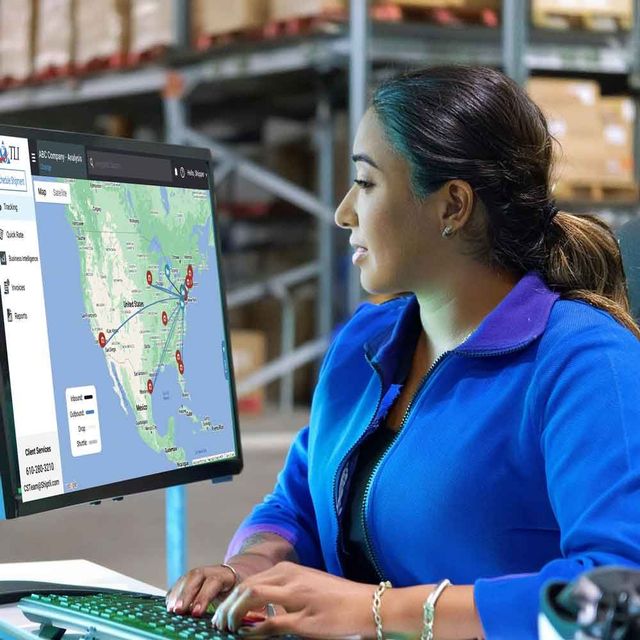In today’s fast-paced supply chain, moving freight isn’t just about trucks and routes now, it’s about flexibility, data, and having the proper systems in place to manage the unexpected. Your logistics partner should offer more than just basic freight services, regardless of whether you’re a manufacturer who needs to get your products to market on time, or a retailer needing to handle multiple shipments every day. They should provide confidence in their services, as well as control and clarity.
Modern freight brokerage services, and 3PL providers that are technologically driven are able to change this.
The Modern Freight Broker is more than an Middleman
In the past, freight brokers were seen as a way to connect the shipping industry and carriers. Today, however, freight brokers have evolved into strategic partners who manage the complexity of transportation on behalf of their clients. They negotiate better rates, identify reliable carriers solve disruptions, and prevent costly delays.

Image credit: translogisticsinc.com
The best freight broker will help you save not just money, but also from the logistical problems that can harm your bottom line.
Translogistics, Inc., or TLI, is redefining the relationship between firms and their customers. By offering multimodal freight brokerage services, they allow businesses to shift between parcel, LTL (less-than-truckload), and volume LTL shipments depending on urgency, budget, or customer needs. This flexibility is more crucial today than in the past.
The 3PL Provider: An Additional layer of strategic planning That You Didn’t Need
Think about an 3PL if you are working with several carriers and are juggling your invoices. You may also be keeping track of shipments by hand or managing claims using spreadsheets. Third-party logistic partners can assist you to reduce time by assisting with these tasks that are tedious.
They provide structure, strategy and knowledge to your logistics department. They’ll analyze the shipping patterns of your company and suggest the most efficient options. They also bring tech-driven processes into the logistics department. They’re not just responding to issues, but preventing these from happening. In an industry that demands transparency and effectiveness, the tools utilized behind the scenes can make an enormous difference.
What is the purpose of a Transportation Management System?
Think of a transportation management system as mission control for your freight. It’s a digital brain that helps you manage, track, and improve your shipping from one platform. TMSs give you visibility and control that you’ve not experienced before. From real-time carrier prices to the creation of Bills of Lading, and checking freight invoices.
Translogistics ViewPoint TMS for instance, was created with these goals in the front of the mind. It does not just compare rates across multiple modes, but it now includes the use of AI-powered drag-and-drop to enter shipment data, eliminating manual typing which slows down teams. This is a prime example of how technology in logistics is improving to enable quicker, more efficient and precise operations.
The partnership is the key to the success
It’s more than just about the services and systems, but also about the people. It’s about having a group behind you who understands what’s at stake when a delivery is delayed or the carrier fails to come over.
This is the reason why choosing the right 3PL provider or a freight broker isn’t just about a transactional one. It’s a decision that is strategic.
Find a supplier who is responsive, flexible, and invests in the technologies that keep your supply chain moving forward. A partner who treats your shipments as urgently and with care as you. When you have the proper assistance, the freight process becomes an effortless process. Your company is better prepared to grow. In modern logistics, it’s not just about moving goods. It’s about being more efficient.